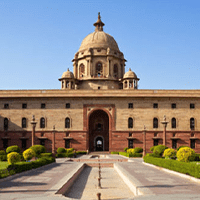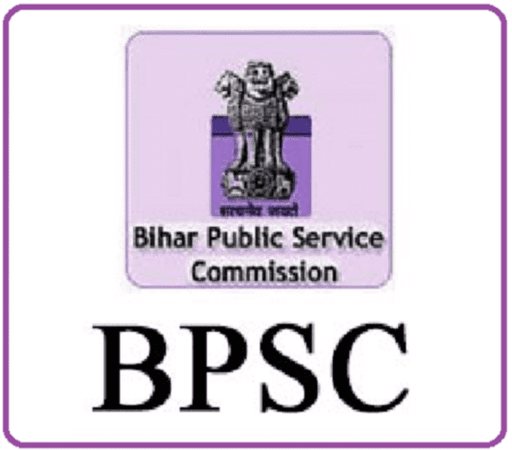Best Study Material for BPSC (Bihar) Exam
BPSC (Bihar) Exam > BPSC (Bihar) Notes > Revision Notes: The Swaraj Party
Revision Notes: The Swaraj Party - BPSC (Bihar) PDF Download
Introduction
- The withdrawal of the Non-cooperation Movement in February 1922 and the arrest of Gandhi led to the spread of disintegration, disorganisation and demoralization in the nationalist ranks. A new line of political activity was taken by C.R. Das and Motilal Nehru.
- They suggested that the nationalists should end the boycott of the legislative councils, enter them, expose them as ‘sham parliaments’and as ‘a mask which the bureaucracy has put on’ and ‘obstruct every work of the council’.
- C.R. Das put forward this programme at the Gaya Congress in Dec. 1922. Another section of the Congress headed by Vallabhbhai Patel, Rajendra Prasad and C. Rajagopalachari opposed the proposal and the proposal was defeated. Das and Motilal resigned from their respective offices in the Congress and on 1 Jan. 1923 announced the formation of Congress-Khilafat Swaraj Party better known later as the Swaraj Party.
- Das was the President and Motilal one of the Secretaries. The adherents to of the council entry came to be known as ‘pro-changers’ and those opposing it as ‘no-changers’.
- The Swaraj Party accepted the Congress Programme in its entirety except in one respect—it would take part in elections due later in the year. Later, Hakim Azmal Khan joined the Swarajists, while Vallabhbhai was a pillar of the No-changers who also included Mazharul Huand M.A. Ansari.
 Hakim Ajmal Khan
Hakim Ajmal Khan - At the Delhi special session of the Congress in 1923, a compromise formula was adopted whereby the Swaraj Party was to fight elections to the Councils and the Assembly on its own.
- At the Coconada Congress of 1923 the Swarajists were permitted to enter the Councils. Thus a parting of ways was avoided. The Belgaun Congress of 1924, presided over by Gandhiji himself, approved the compromise formula evolved earlier whereby the Swarajists could carry on their work in the Legislature on behalf of the Congress.
- At the Kanpur Congress of 1925 over which Sarojini Naidu presided—the second woman to get this honour—full reconciliation was brought about between the Swaraj Party and the Congress.
- The Swaraj Party had been established to fight the elections to the Assembly and the Councils and being there to check the oppressive policy of the bureaucracy.
- In 1920, due to Congress boycott of elections, pro-Government elements had captured the seats in the Assembly and Councils, but now it was felt that the Swarajists would be able to advance the national cause of Swaraj through their obstructionist activities.
- Their main technics of action were:
(a) The refusal to pass the budget
(b) Opposition to repressive legislation
(c) Cooperation in passing social welfare legislation
(d) Occasional acceptance of offices
(e) Aquitting the offices and resigning the membership when asked to do so by the Congress. - In the 1923 and the 1926 elections, the Swaraj Party captured a fairly substantial number of the elected seats. In 1923 elections, the Swarajists got a majority in Bengal and C.P. In the Central Legislative Assembly, Motilal Nehru was chosen the leader of the Swarajists. On 24 August, 1925, Vithalbhai Patel was elected the first non-official President (Speaker) of the Indian Legislative Assembly and was re-elected to this office on January 20, 1927.
Swarajists in Action
- In 1923 in the Central Legislative Assembly, an Independent Party of 24 members was constituted. The Swaraj Party had 43 members. Together the Independent Party and the Swaraj Party formed the National Party. On February 8, 1924 the Swarajists proposed the summoning of a Round Table Conference for suggesting constitutional reforms. In 1925, in the Central Assembly, Motilal Nehru put forward the National Demand for the grant of Dominion Status by the British Parliament but the Government refused to accept it.
 The Swarajists
The Swarajists - During the period 1923 to 1926, the Swaraj Party followed the policy of obstruction and resistance to the functioning of the imperialist bureaucracy. In 1922, Lloyd George, in a speech, had hailed the Indian Civil Service as the ‘steel-frame’ and he opposed the increasing Indianization of this steel-frame, the basis of the imperial system.The Swarajists aimed to paralyse this machinery but due to their being overruled by the special powers of the Viceroy and the greater number of the nominated and some elected members siding with the imperialist cause, they could not succeed in their aim.
- Although the Swarajist members were bent upon wrecking the Government of India Act of 1919 and the Indian Legislative Assembly established under the provisions of that Act, some welfare and social laws were passed when the executive and the legislature acted in a spirit of cooperation.
Thus the Workmen’s Compensation Act (1923), the Indian Trade Union Act (1926), the Indian Bar Councils Act, the (prevention of ) Child Marriage Act and the Factories Act were passed.
At the provincial level also, under the Dyarchy, some notable laws like—the Calcutta Municipal Act (1923), the Bombay Local Boards Act (1923), the Madras State Aid to Industries Act (1923), the Bihar and Orissa Village Administration Act (1922) and the Bombay Primary Education Act were passed. - As the President of the Bengal Political Conference at Faridpur in 1925, which was also attended by Gandhiji, C.R. Das wanted to evolve a compromise formula with the Government after settling the Hindu-Muslim question. But due to the premature death of C.R. Das on 16th June, 1925 the whole scheme fizzled out. His death was a mighty blow to the Swaraj Party as he had shown commanding power of leadership and organizational skill.Question for Revision Notes: The Swaraj PartyTry yourself:Their main technics of action of Swaraj Party wasView Solution
Causes of decline of Swaraj Party
- Death of C.R. Dass in June 1925.
- Motilal Nehru’s inability to keep the party together.
- Swarajists accepted positions in Government Committees, in Assemblies and Executive Councils.
- Appearance of splinter groups in the party.
Contribution of Swaraj party to Freedom Struggle
- Pressurised the British Government into acceptance of some Indian demands.
- Party kept up the political struggle for freedom during 1923-28.
- British Labour Party accepted Dominion Stats as goal of constitutional development in India.
- Legislatures used as platforms for national propaganda.
- Exposed the autocracy of British Government and callousness of I.C.S.
- Promoted the cause of Indian Freedom and added parliamentary dimension to freedom struggle after 1922.
 |
Download the notes
Revision Notes: The Swaraj Party
|
Download as PDF |
Download as PDF
Swarajists and Their Achievements
- When the Congress refused to accept the proposal of entry in the Legislative Councils to be formed by the Act of 1919, C.R. Das and Pt. Moti Lal Nehru formed the Swaraj Party in 1922.
- Gandhi advised a compromise in 1923 by which the Swarajists were allowed to remain within the Congress and the Congress-men were made free to support them.
- The party declared that it would ask for the right to frame a constitution by Indians, would clear the defects of the Act of 1919 from within by a policy of constant obstruction in the functioning of the government and, in case of failure to do so, would join the Civil Disobedience Movement.
- The Swarajists succeeded fairly in the elections held in 1923.
- The Swarajists worked in the Councils for nearly five years with varying success.
- At the Centre, they failed to achieve any objective and took recourse to the policy of obstruction.
- In the provinces, realising the futility of the policy of obstruction, they finally agreed to cooperate with the government and thus, lost their original object of taking non-cooperation to the Councils.
- The death of C. R. Das in 1925 weakened the Swaraj Party and in 1926, the Congress called the Swarajists to walk out of legislatures.
- The Swaraj Party, thus, failed to make any concrete achievement.
- The primary reason of its failure was its unrealistic and self-contradictory policy of entry into the councils with a view to refusing cooperation with the government.
- Yet, the Swarajists provided an alternative to the people in absence of a mass-movement, were responsible for the Round Table Conferences, the appointment of Middiman Committee and the Simon Commission, and were successful in exposing the autocratic functioning of the government.
Question for Revision Notes: The Swaraj Party
Try yourself:The Swarajists succeeded fairly in the elections held in ____
View Solution
The document Revision Notes: The Swaraj Party - BPSC (Bihar) is a part of BPSC (Bihar) category.
All you need of BPSC (Bihar) at this link: BPSC (Bihar)
FAQs on Revision Notes: The Swaraj Party - BPSC (Bihar)
| 1. What is the Swaraj Party? |  |
| 2. Why did the Swaraj Party break away from the Indian National Congress? |  |
The Swaraj Party broke away from the Indian National Congress due to disagreements over the party's response to the government's repressive measures, such as the Rowlatt Act and the Jallianwala Bagh massacre. The leaders of the Swaraj Party believed that the Indian National Congress was not doing enough to challenge these actions and felt the need for a more assertive approach. They also wanted to participate in the legislative councils, which the Indian National Congress had boycotted.
| 3. What were the goals of the Swaraj Party? |  |
The Swaraj Party aimed to work within the existing political system to achieve self-governance or swaraj for India. They sought to actively participate in the legislative councils and use these platforms to advocate for political reforms, civil liberties, and economic empowerment. The party also focused on mobilizing public support through mass movements and campaigns to pressure the government into addressing the demands of the Indian people.
| 4. How did the Swaraj Party contribute to the Indian independence movement? |  |
The Swaraj Party played a significant role in the Indian independence movement by bringing a more assertive and organized approach to the political arena. They actively participated in the legislative councils and used these platforms to challenge repressive laws, advocate for constitutional reforms, and push for self-governance. Their efforts helped in raising awareness about the injustices faced by the Indian people and mobilizing public support for the cause of independence.
| 5. What was the significance of the Swaraj Party in Indian political history? |  |
The Swaraj Party holds significance in Indian political history as it marked a shift in the approach of the Indian National Congress towards the government. It demonstrated a more assertive and proactive stance, advocating for self-governance and actively participating in the political process. The party's efforts paved the way for future political movements and played a role in shaping the political landscape of India, ultimately leading to independence.
Download as PDF
Related Searches

































